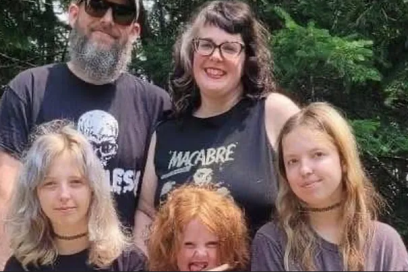Local Expert Blog: 3 Tips For Caregiver Well-being
Saturday October 2nd, 2021, 10:55am
By Dr. Anne McLachlan, C.Psych.
Advocating for and supporting a family member with a severe mental health disorder and/or substance use can be rewarding, challenging, and at times, emotionally and physically draining.
At times they may be well, taking their medications, looking after themselves and their home, attending meetings or groups, and at other times, they may be unwell, neglecting themselves, perhaps not eating well, using substances, and avoiding family and friends.
Family members can get so focused on providing support that they neglect their own physical and mental health. As well, being constantly exposed to another person’s emotional pain and trying to relieve their suffering can lead to caregiver fatigue. According to the Centre for Addictions and Mental Health, signs of caregiver fatigue include: feelings of helplessness and powerlessness in the face of our relative’s suffering; reduced feelings of empathy; sleep problems; irritability; sadness, anxiety or anger; social isolation; and increased substance use.
Awareness
Becoming aware of the signs of caregiver fatigue is the first step to reducing it. Take some time to sit, breathe, and untangle the thoughts, emotions, and physical sensations you are having. Mental health providers who practice acceptance and commitment therapy encourage us to use mindfulness to recognize that we are not what we think and feel. We are separate from our thoughts, feelings, and physical sensations and if we learn how to pause, we can choose how to act rather than react. We also don’t need to take on the thoughts and emotions that our loved ones are experiencing as our own.
Setting Healthy Boundaries
The next step is to set some healthy boundaries around providing support. Decide when, where, and for how much time you can provide support and then communicate those boundaries. “I’ll talk to you every morning, but please don’t call after 11 pm, I need my rest. Let’s think about who else you could call late at night.”
Setting healthy boundaries allows us to set time aside to do self-care which recharges us and gives us the mental and physical energy to continue to be a caregiver.
Self-Care
The American Psychological Association recommends that caregivers make self-care part of a daily routine and identifies 5 important activities. Relaxation isn’t just bubble baths and scented candles, but also includes listening to music, watching birds at the birdfeeder, or doing deep breathing. Self-care involves getting adequate sleep by going to bed when tired and getting up at the same time every day. It means fueling the body and mind by eating healthy and regular meals. Daily physical activity helps both our body and our mind. It can be as simple as a daily walk and dancing to the radio, or as demanding as biking and running 5 km. And finally, socializing with friends and family is an important part of self-care whether in-person or by telephone or video-call.
Becoming aware of the signs of caregiver fatigue, setting healthy boundaries, and doing self-care activities are three tips for dealing with the demands of caring for others.
Caring for the Caregiver Conference
Are you a caregiver to a loved-one with mental illness and/or addictions? Learn more from Dr. McLachlan and others by registering to attend the inaugural Caring for the Caregiver Conference. Scheduled on October 16 and October 23, 2021 from 9:00am to 1:00pm, this virtual event will focus on education, wellness and connections. There is no cost to participate. Based on your schedule, you are more than welcome to register for one or both days of the conference.
https://www.wesparkhealth.com/caregiver-conference
About the Author
Dr. Anne McLachlan, C.Psych
Dr. Anne McLachlan, C.Psych., is a psychologist registered to provide services to adults and seniors in neuropsychology, & clinical and rehabilitation psychology. She completed her B.A. at Western University and her M.A. and Ph.D. in clinical psychology at Queen’s University at Kingston. Over the past 27 years, she has provided neuropsychological and psychological assessments and interventions to a variety of programs (adult mental health and rehabilitation) at Hôtel-Dieu Grace Healthcare. Currently, she brings her expertise in diagnosis of neurocognitive and psychological disorders as well as psychological interventions to outpatients in the Acquired Brain Injury Program and inpatients on the Rehabilitation and Complex Medical Care units. Supervising clinical neuropsychology doctoral students from the University of Windsor, she is mentoring the next generation of neuropsychologists.
Sponsored story by Hotel Dieu Grace Healthcare, The University of Windsor, and WE-SPARK Health Institute.


























